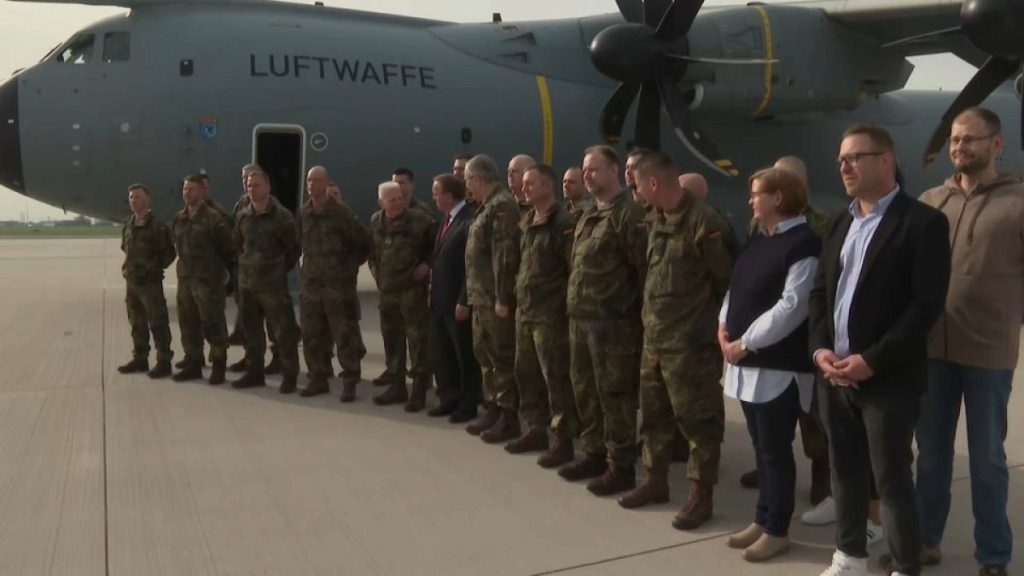The German armed forces, the Bundeswehr, are facing a significant recruitment challenge as they strive to meet existing personnel targets and grapple with ambitious plans for expansion. Defense Minister Boris Pistorius recently announced a goal to increase the size of the Bundeswehr to 230,000 personnel, a substantial increase from the current target of 203,000 and a considerable leap from the current strength of approximately 180,000. This ambitious plan comes amidst a backdrop of persistent recruitment difficulties that have plagued the Bundeswehr for years, raising concerns about the feasibility of achieving these expanded force levels. The minister cited NATO requirements and the Two Plus Four Agreement as justifications for the proposed increase, emphasizing the importance of maintaining legal compliance and adhering to international and national legislation.
The Two Plus Four Agreement, signed in 1990, addressed the limitations on German armed forces following reunification. While the agreement sets limits on the overall size of the German military, including active and reserve forces, Pistorius clarified that the planned expansion remains within these established boundaries. He highlighted the need to structure the Bundeswehr in a manner that fulfills the obligations outlined in the agreement, ensuring Germany’s continued compliance with international security frameworks. This rationale seeks to position the expansion not as an escalation of military capacity beyond agreed-upon limits, but as an internal realignment to meet existing commitments. However, the practical challenge of attracting and retaining sufficient personnel to reach these targets remains a significant hurdle.
The Bundeswehr’s recruitment woes are not a new phenomenon. Years of declining interest in military service, coupled with a competitive civilian job market, have created a persistent shortfall in personnel numbers. Attracting qualified individuals to a career in the armed forces has become increasingly difficult, and the proposed expansion is likely to exacerbate this existing challenge. The Bundeswehr will need to develop innovative recruitment strategies and enhance the appeal of military service to overcome this hurdle and achieve its ambitious growth objectives. This might involve a reassessment of salary structures, benefits packages, and career progression opportunities to make military service more competitive with civilian employment options.
The pressure to expand the Bundeswehr’s capacity comes in the wake of Russia’s invasion of Ukraine in 2022, which triggered a renewed focus on strengthening NATO’s defense capabilities. NATO member states have been urged to increase their military spending and personnel contributions to bolster the alliance’s collective security posture. Germany’s planned expansion is a direct response to this call for increased commitment, reflecting a recognition of the changing security landscape in Europe and the need for a more robust German contribution to NATO’s defense efforts. This expansion signals Germany’s willingness to assume a greater role in regional security and contribute to deterring potential aggression.
Achieving the proposed increase in personnel strength will require a multifaceted approach addressing the underlying factors contributing to the Bundeswehr’s recruitment challenges. This includes not only improving compensation and career prospects but also enhancing the public image of military service and fostering a greater understanding of its importance in safeguarding national security. The Bundeswehr may need to explore targeted recruitment campaigns aimed at specific demographic groups, as well as initiatives to improve work-life balance and address concerns about the demands of military life. Furthermore, promoting diversity and inclusion within the armed forces could broaden the pool of potential recruits and create a more representative military.
The success of Germany’s plan to expand the Bundeswehr hinges on its ability to overcome the persistent recruitment challenges that have hampered its growth for years. The proposed increase, while justified by NATO requirements and international agreements, presents a significant logistical and organizational undertaking. A comprehensive strategy encompassing competitive compensation, enhanced career opportunities, and a renewed focus on public engagement will be essential to attract and retain the necessary personnel to achieve these ambitious targets. Ultimately, the Bundeswehr’s ability to meet this challenge will be crucial not only for Germany’s national security but also for its contribution to the collective defense of the NATO alliance.

